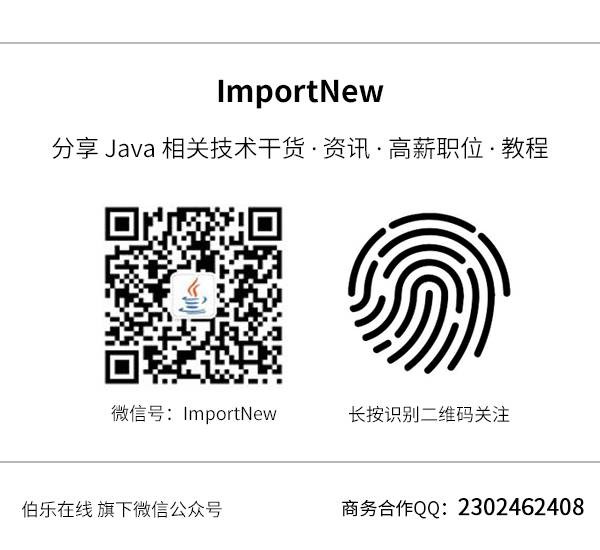(點選上方公眾號,可快速關註)
來源:zy_lebron ,
youngforzy.top/2018/02/15/ActiveMQ結合Spring收發訊息/
ActiveMQ 結合 Spring 收發訊息
直接使用 ActiveMQ 的方式需要重覆寫很多程式碼,且不利於管理,Spring 提供了一種更加簡便的方式————Spring JMS ,透過它可以更加方便地使用 ActiveMQ。
Maven 依賴
結合Spring使用ActiveMQ的依賴如下:
org.springframework
spring-jms
${spring.version}
ActiveMQ.xml 檔案
xmlns:xsi=”http://www.w3.org/2001/XMLSchema-instance”
xmlns:amq=”http://activemq.apache.org/schema/core”
xsi:schemaLocation=”http://www.springframework.org/schema/beans
http://www.springframework.org/schema/beans/spring-beans-4.0.xsd
http://activemq.apache.org/schema/core
http://activemq.apache.org/schema/core/activemq-core-5.12.1.xsd”>
brokerURL=”tcp://localhost:61616″
userName=”admin”
password=”admin” />
class=”org.springframework.jms.listener.DefaultMessageListenerContainer”>
配置 connectionFactory
connectionFactory 是 Spring 用於建立到 JMS 伺服器連結的,Spring 提供了多種 connectionFactory。
brokerURL=”tcp://localhost:61616″
userName=”admin”
password=”admin” />
配置Queue
配置Topic
配置JMS訊息模板——jmsTemplate
最後,在 applicationContext.xml 中引入配置好的 ActiveMQ.xml
以上就是配置檔案相關的,下麵是具體的業務程式碼。
訊息生產者服務
@Service
public class ProducerService {
@Autowired
private JmsTemplate jmsTemplate;
//使用預設目的地
public void sendMessageDefault(final String msg){
Destination destination = jmsTemplate.getDefaultDestination();
System.out.println(“向佇列: ” + destination + ” 成功傳送一條訊息”);
jmsTemplate.send(new MessageCreator() {
public Message createMessage(Session session) throws JMSException {
return session.createTextMessage(msg);
}
});
}
//可指定目的地
public void sendMessage(Destination destination,final String msg){
jmsTemplate.send(destination, new MessageCreator() {
public Message createMessage(Session session) throws JMSException {
return session.createTextMessage(msg);
}
});
}
}
訊息消費者服務
@Service
public class ConsumerService {
@Autowired
private JmsTemplate jmsTemplate;
//從指定的Destination接收訊息
public TextMessage recive(Destination destination){
TextMessage message = (TextMessage) jmsTemplate.receive(destination);
try {
System.out.println(“從佇列” + destination.toString() + “收到了訊息” + message.getText());
} catch (JMSException e) {
e.printStackTrace();
}
return message;
}
//從預設的Destination接收訊息
public void reciveDefault(){
Destination destination = jmsTemplate.getDefaultDestination();
jmsTemplate.setReceiveTimeout(5000);
while(true){
TextMessage message = (TextMessage) jmsTemplate.receive(destination);
try {
//這裡還是同一個消費者
System.out.println(“消費者 從目的地 ” + destination.toString() + ” 收到了訊息” + message.getText());
} catch (JMSException e) {
e.printStackTrace();
}
}
}
}
生產者
直接在 main 方法中獲取 ApplicationContext 執行,便於測試。
@Component
public class MsgProducer {
@Autowired
private ProducerService producerService;
public void send(){
System.out.println(“生產者開始傳送訊息:”);
for(int i = 1; i < 11; i++){
String msg = “生產者發出的訊息”;
producerService.sendMessageDefault(msg + “—–” + i);
}
}
public static void main(String[] args) {
ApplicationContext context = new ClassPathXmlApplicationContext(“classpath:/applicationContext.xml”);
MsgProducer msgProducer = context.getBean(MsgProducer.class);
msgProducer.send();
}
}
消費者
@Component
public class MsgConsumer {
@Autowired
private ConsumerService consumerService;
public void recive(){
System.out.println(“消費者 1 開始接收訊息:”);
consumerService.reciveDefault();
}
public static void main(String[] args) {
ApplicationContext context = new ClassPathXmlApplicationContext(“classpath:/applicationContext.xml”);
MsgConsumer msgConsumer = context.getBean(MsgConsumer.class);
msgConsumer.recive();
}
}
接下來就可以啟動專案。同樣是使用兩種方式測試。
第一種方式————點對點(Queue)
同步的方式
先啟動生產者傳送10條訊息, 再啟動消費者,可以看到控制檯顯示成功收到10條訊息。


非同步監聽的方式
透過監聽器即可實現非同步接收訊息的效果,而不是像上面使用 while() 輪詢同步的方式。
專案中一般都是使用非同步監聽的方式,在 A 服務中發送了一條訊息,B 服務可以利用訊息監聽器監聽,當收到訊息後,進行相應的操作。
訊息監聽器(3種)
透過繼承 JMS 中的 MessageListener 介面,實現 onMessage() 方法,就可以自定義監聽器。這是最基本的監聽器。(可根據業務實現自定義的功能)
另外spring也給我們提供了其他型別的訊息監聽器,比如 SessionAwareMessageListener,它的作用不僅可以接收訊息,還可以傳送一條訊息通知對方表示自己收到了訊息。(還有一種是 MessageListenerAdapter)
一個簡單的自定義監聽器如下:收到訊息後列印訊息
public class QueueMessageListener implements MessageListener {
public void onMessage(Message message) {
//如果有訊息
TextMessage tmessage = (TextMessage) message;
try {
if(tmessage != null){
System.out.println(“監聽器監聽訊息:”+tmessage.getText());
}
} catch (JMSException e) {
e.printStackTrace();
}
}
}
在 ActiveMQ.xml 中引入訊息監聽器:
class=”org.springframework.jms.listener.DefaultMessageListenerContainer”>
可以看到,當使用訊息監聽器之後,每傳送一條訊息立馬就會被監聽到:

第二種方式————釋出/訂閱(Topic)
同步的方式
類似點對點中同步的方式,只是每個消費者都能收到生產者發出的全部訊息,不再贅述。
非同步監聽的方式
啟動兩個監聽器(兩個消費者),對訊息進行非同步監聽。看是否各自能收到生產者傳送的訊息。

可以看到,每個監聽器各自都收到了生產者傳送的10條訊息。
【關於投稿】
如果大家有原創好文投稿,請直接給公號傳送留言。
① 留言格式:
【投稿】+《 文章標題》+ 文章連結
② 示例:
【投稿】《不要自稱是程式員,我十多年的 IT 職場總結》:http://blog.jobbole.com/94148/
③ 最後請附上您的個人簡介哈~
看完本文有收穫?請轉發分享給更多人
關註「ImportNew」,提升Java技能

 知識星球
知識星球